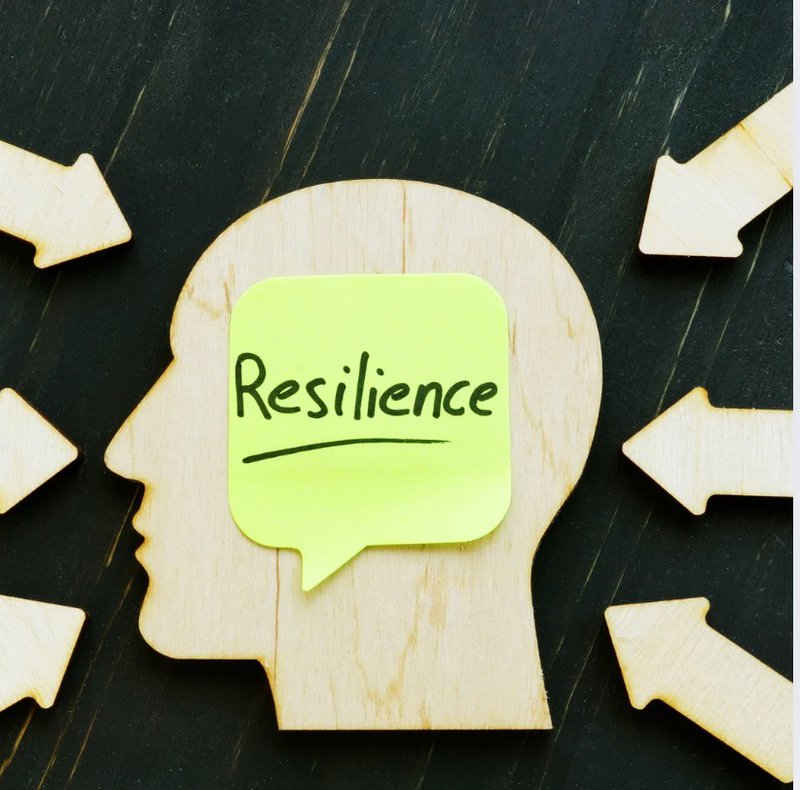The 5 Pillars of Resilience and Why EFT Tapping Makes You Stronger
If it feels like the world has been stuck in chaos mode lately—you’re not alone. Between layoffs, economic whiplash, and the constant pressure to be “on” 24/7, it’s no wonder people are feeling zapped, stuck, and stressed to the edge.
For me? I’ve been there. A few years ago, a sweater catching on a doorknob was all it took to launch me into an existential crisis. Don’t even get me started on the rude bakery lady or when I’d spill coffee on my only clean shirt before a meeting. I wasn’t just lacking resilience—I was emotionally threadbare.
That’s why I want to talk about emotional resilience. Not the “grit-your-teeth-and-push-through” kind. I’m talking about the real kind. The kind that lets you cry if you need to, take a beat, tap a few acupuncture points, and then show up anyway—clearer, calmer, and ready to try again.
And no, emotional resilience didn’t come naturally to me. I am not some Zen Buddhist monk. I have been hyper for most of my adult life so if my emotions aren’t released or channeled appropriately, I can get frustrated. Sidenote: This is also one of the reasons that I exercise so much because it releases stress and I feel amazing 100% of the time after exercising. Anyway, I’m not a natural by any means. I had to build it. Slowly. Through experience, support, and eventually, EFT Tapping. Let’s dig into it.

The Truth About Emotional Resilience (and Why It’s Not What You Think)
Let’s clear something up— resilience isn’t just for high-achievers, Type-A personalities, or people who run marathons for fun and push themselves to the extremes with CrossFit and ice plunges. It’s not about “staying strong” or pretending everything’s fine when it’s not.
Real emotional resilience is about learning how to regulate your nervous system, process emotions, and respond—rather than react—when life doesn’t go as planned. Which, let’s face it, is often.
In my work as an EFT Empowerment Coach, I help professionals build real emotional resilience by understanding what’s known as the 5 Types of Resistance that hold people back—and how to work through them so you don’t spiral every time a deadline shifts, a boss micromanages you, or someone throws a passive-aggressive comment in the Monday meeting.
Because in today’s workplace, resilience isn’t just a nice-to-have skill.
It’s essential for performance, leadership, and long-term well-being.
1. Physical Resilience: Your Body, Your Battery
Ever been so drained that even unloading the dishwasher feels like climbing Everest? That’s your physical resilience in low-power mode. And no, I’m not here to tell you to hit the gym harder. I’m here to say: Your nervous system is part of your physical body.
When it’s overloaded, your energy crashes. When it’s balanced? You feel more capable, focused, and present. That’s why tapping isn’t just some “woo woo” thing—it literally helps regulate your body and calm your stress responses, which leads to more vitality (without chugging 6 coffees).
"If it doesn't challenge you, it doesn't change you." – Fred DeVito
Let’s go deeper:
3 Common Pitfalls That Drain Physical Resilience:
Running on cortisol:
You wake up and immediately check your phone. Then it’s emails, notifications, and maybe skipping breakfast. Your nervous system never gets a break—just a slow, constant drip of stress.
Ignoring body cues:
You push past headaches, fatigue, and gut issues like they’re optional. Your body whispers before it screams.
Using caffeine and adrenaline as substitutes for rest:
Sound familiar? Coffee isn’t a meal. Energy drinks aren’t recovery. This isn’t sustainable—just survival mode with better branding.
3 Practical Ways to Rebuild Physical Resilience:
Micro moments of rest:
Instead of waiting for a full spa day, take 90 seconds to regulate your nervous system—like a few rounds of EFT tapping, gentle stretches, or just breathing with your hand on your heart.
Eat and hydrate consistently:
Your nervous system needs real fuel. Balanced meals and electrolytes are more powerful than we give them credit for. Especially during high-stress seasons.
Tapping to reset stress response:
A few minutes of EFT in the morning or after work can flip the switch from wired-and-tired to calm-and-clear. It’s like giving your body the software update it’s been begging for.
Physical resilience isn’t about perfection—it’s about listening, adjusting, and creating safety inside your body so it doesn’t burn out trying to survive the day
"If it doesn't challenge you, it doesn't change you." - Fred DeVito.

2. Mental Resilience: When Your Brain Becomes a Toddler with a Marker
Let’s be real: when your mental resilience is shot, everything feels harder. You forget your passwords, overanalyze emails, and spend an hour deciding what to eat. Maybe it’s ‘too much trouble’ so you end up binging on take out instead.
Mental resilience doesn’t mean becoming a productivity robot—it means giving your brain a chance to slow down and stop spinning. EFT helps with this by giving your thoughts a place to land. You name them, tap through them, and often, they lose their grip.
"You don’t have to believe everything you think. Especially the stuff that starts spiraling at 3AM."
3 Pitfalls that Make It Worse:
Overthinking everything:
From text messages to tone of voice in a Zoom call—you create 10 problems that don’t even exist.
Decision fatigue:
When you’ve made 37 tiny decisions before 9 a.m., no wonder you feel mentally fried by noon.
Trying to think your way out of a feeling:
Sometimes you’re not being irrational—you're just dysregulated.
3 Ways to Build Mental Resilience:
EFT Tapping to disrupt the thought spiral:
When your thoughts start to swirl, tapping can help interrupt the loop and bring clarity to ground you and stop the overthinking spiral.
Name your thoughts instead of becoming them:
“I’m having the thought that I’m failing,” is different from “I’m a failure.”
Schedule brain breaks:
Give your mind moments of nothingness. Boredom isn’t laziness—it’s reset time.
Mental resilience is about recovery, not perfection. It’s how you keep going without frying your circuits—and tapping makes that possible in a surprisingly simple way.”It’s your reaction to adversity, not adversity itself that determines how your life’s story will develop.”― Dieter F. Uchtdorf
3. Emotional Resilience: AKA, Not Crying on the Subway Every Tuesday
This was a big one for me. I used to take everything personally. It did not help that at the time I was in a super unhealthy relationship because I didn’t realize I deserved better. I had been reduced to an absolute hollow, unrecognizable version of an emotionally fragile shell of myself.
Someone in the German bakery was rude to me? I spiraled into “oh my god, what did I do?”
Someone criticized my idea at work? Cue 3 days of obsessive overthinking and imaginary arguments in the shower.
If my sweater got caught on a door handle? Existential crisis. Back then, I didn’t process emotions so I could let them go. I kinda collected them. Like emotional clutter. Every slight, every stressor, every perceived rejection—I stored it all in my body like a hoarder of hurts.
The result? Constant inner chaos. No compassion for myself. Zero bandwidth. And the emotional resilience of a soggy napkin. But here's the truth: emotional resilience isn’t about becoming numb or “not caring.” It’s about learning how to move through your emotions, not get stuck in them.
That’s what EFT Tapping changed for me.
Now, when I get hit with something uncomfortable, I can pause, acknowledge the emotion (without judging it), tap on it, and actually let it go. It doesn’t fester. It doesn’t ruin my week. It doesn’t hijack my self-worth.
It just…gets released and I can continue on in my day. (Imagine that.)
3 Common Pitfalls That Drain Emotional Resilience:
Emotional suppression
You tell yourself, “I’m fine,” when you’re definitely not. You shove down the feeling, hoping it’ll disappear. Spoiler: it doesn’t—it just leaks out sideways later (or on the people you love).
Over-identifying with emotions
Feeling sad becomes, “I am a sad person.” Feeling anxious turns into, “I can’t handle things.” This blurs the line between a passing state and a permanent identity.
Emotional outsourcing
You rely on others to regulate your feelings. If they’re happy with you, you're okay. If they’re upset, you’re wrecked. That external emotional thermometer? Exhausting.

3 Ways to Boost Your Emotional Resilience with (or without) EFT:
Label the emotion accurately
“I feel bad” isn’t specific. Try: “I feel disappointed because I didn’t get feedback I hoped for.” Naming it helps your brain file it instead of catastrophizing it.
Use EFT to process & release
A quick round of tapping can shift your emotional intensity fast. You're not ignoring your feelings—you’re allowing them to move, instead of calcifying in your body.
Build an internal pause button
When you feel triggered, take a breath. Ask: “Is this about now—or is this old stuff showing up?” That tiny pause is the birthplace of emotional power.
“I can be changed by what happens to me. But I refuse to be reduced by it.”― Maya Angelou

4. Social Resilience: When You Stop Rehearsing Conversations in the Shower
Let’s talk about other humans. Because let’s be honest—people can be weird, unpredictable, and sometimes wildly disappointing. And if you've ever felt misunderstood, left out, or judged… welcome to being human.
Now, try moving to another country where you don’t fully speak the language.
Where social cues are different. Social resilience is your ability to adapt in connection with others—without losing yourself. It’s about being able to build meaningful relationships, repair conflicts, and navigate uncomfortable social situations without shutting down or spiraling into shame.
I’ve lived in six countries—and trust me, being the outsider will teach you exactly where your social wounds live. It also forces you to grow. You learn how to stay grounded in your identity even when you're surrounded by unfamiliar customs, accents, or expectations.
Social resilience is not about being popular, extroverted, or always knowing the right thing to say.
It’s about this:
Can you stay present in a conversation—even if it’s awkward?
Can you ask for help—or set a boundary—without guilt?
Can you show up in your truth, even when it’s not universally understood?
3 Common Pitfalls That Undermine Social Resilience:
Over-adapting to fit in
You shapeshift to avoid conflict or rejection. You agree when you don’t. You laugh when it’s not funny. Slowly, you disappear from your own life.
Avoidance of vulnerability
You avoid deep conversations, honest feedback, or asking for support—because it feels too risky. But connection without vulnerability? It stays shallow and lonely.
Assuming you can mind read
Someone seems distant? You assume they’re mad at you. Someone declines your invite? You spiral into “I’m not likable.” This kind of interpretation burnout is exhausting.
3 Ways to Strengthen Social Resilience:
Practice safe honesty
Start small. Say what you actually think in low-stakes situations. Build your tolerance for being seen without self-editing every word.
Use EFT to clear social anxiety & rejection wounds
Tapping can help you neutralize the fear of judgment or criticism—especially if you've been burned in the past. You can literally calm your nervous system before a hard conversation or networking event.
Create your own community (instead of waiting to be chosen)
This is especially powerful abroad. Invite people. Host the thing. Be the glue. You don’t have to wait for belonging—you can build it.

5. Spiritual Resilience: Purpose Without the Pressure
When life knocks you down—again—and your plans unravel (hi, 2020… and 2025), there’s one quiet question that sneaks in: “What’s the point of all this?”
That’s where spiritual resilience comes in.
And no, it’s not about religion.
It’s about your ability to stay anchored to something deeper when the surface-level stuff starts to crumble. It’s about purpose, perspective, and the meaning you assign to what you’re going through. When you have spiritual resilience, you're not just reacting—you’re zooming out. You know how to find light in dark places. You trust that even if today is messy, it doesn’t define your whole story.
When you don’t have it? You feel untethered. Hopeless. Like nothing matters. Which makes it really hard to keep showing up with intention and hope. This is what I help my clients build through EFT: not just mental calm, but the ability to connect to who they really are—and what they’re here to do—beneath all the noise.
3 Common Pitfalls That Undermine Spiritual Resilience:
Over-identifying with your productivity or success
When your identity = your output, any setback feels like an existential crisis. Who are you without the achievement? The job title? The constant striving?
Avoiding the deeper questions
It's easy to distract yourself with busywork, TikTok, or wine. But spiritual resilience requires the courage to ask: What do I really want from this life? And that can feel terrifying if you’ve been on autopilot.
Living by someone else’s definition of success
Maybe it’s what your parents wanted. Or what your industry rewards. But if your ladder’s up the wrong wall, it doesn’t matter how hard you climb—you’ll still feel lost at the top.
3 Ways to Strengthen Spiritual Resilience:
Define your own metrics of meaning
Is it connection? Growth? Freedom? Impact? Get clear on what makes life feel worth it to you—so when things fall apart, you’re not left wondering why you’re doing any of it.
Use EFT to clear identity blocks
Tapping can help release the internalized messages that tell you you’re “not enough” unless you perform. This creates space for authenticity and self-connection.
Create rituals that ground you
Whether it’s journaling, walking in nature, or just sitting with a cup of tea—build small, sacred moments into your day that remind you who you are and what matters.

So Where Does EFT Fit Into All This?
EFT (Emotional Freedom Techniques) is a simple but wildly effective way to get your emotional, mental, and nervous system “unstuck.” You tap gently on certain acupuncture points while focusing on a thought, emotion, or belief that’s weighing you down.
It’s weird. It works. And it’s changed my life.
I've seen clients shift long-standing emotional patterns in minutes. I've used it to clear performance anxiety, release fears of judgment, and even move through grief and self-doubt.
And before you ask—no, this isn’t a substitute for therapy. It’s a complement. But the beauty of EFT is that once you know how to do it, you have the tools in your own hands.
“No matter how bleak or menacing a situation may appear, it does not entirely own us. It can’t take away our freedom to respond, our power to take action.”― Ryder Carroll
TL;DR? (Too Long, Didn’t Read?)
Yes, I used to spiral over spilled coffee. Now I can meet uncertainty with a lot more calm. And if I’m not, I know how to calm down. And while I’m still a human with feelings and the occasional door handle PMS rage, I no longer fall apart over every inconvenience. That’s resilience. And you can build it too.
Curious about how tapping can help you stop spiraling and start thriving?
👉 [Check out my free 5-day Money Mindset + Manifestation course here]
👉 Or better yet—[book a session with me and let’s tap through the noise together]
Because life’s hard enough. You don’t have to carry it alone.
About Andrea Hunt:
I’m an EFT Tapping Empowerment Coach and I help ambitious professional women reach their goals faster by breaking free from fear, self-doubt, and impostor syndrome so they can build confidence like a muscle—one bold step at a time—and finally step outside their comfort zone to create the life they know they deserve.
Curious about EFT Tapping? Download my FREE EFT book and discover how tapping can enhance emotional resilience, improve mindset, and reduce perfectionism and negative self-talk.
➡️ Get Your Free Ebook Here to Learn the Healing Transformative Power of EFT Tapping https://bit.ly/3U2eHnw
➡️ Book a call with me here! https://bit.ly/4g4cIrD
➡️ Learn more about me: www.dreahunt.com












